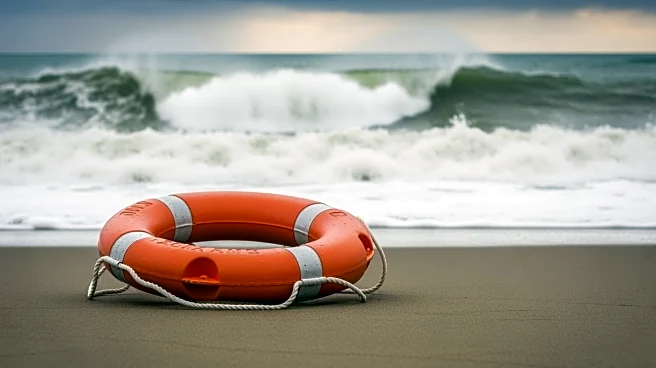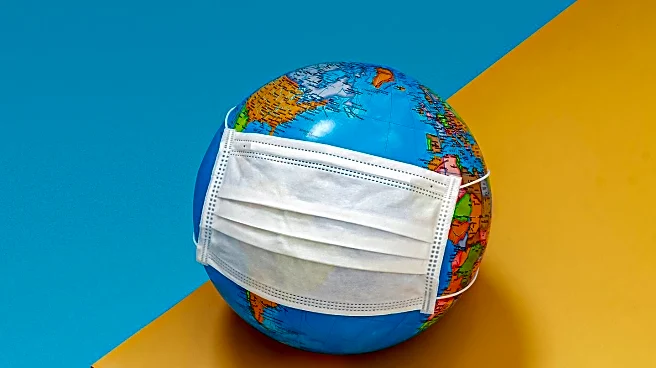What's Happening?
Israel has barred Turkish rescue teams from entering Gaza until Hamas returns the remains of hostages. This decision comes amid ongoing negotiations and security discussions led by Prime Minister Benjamin Netanyahu. The refusal to return hostages' bodies
has stalled efforts to provide humanitarian aid and rescue operations in Gaza. The situation is part of the broader context of the Trump plan, which aims to address the conflict between Israel and Hamas.
Why It's Important?
The blockade of Turkish rescue teams highlights the complexities of international relations and humanitarian efforts in conflict zones. It underscores the challenges faced by countries in balancing security concerns with humanitarian needs. The decision affects diplomatic relations between Israel and Turkey, potentially impacting future cooperation in the region. The hostage crisis remains a critical issue, influencing peace negotiations and the implementation of the Trump plan.
What's Next?
The situation may lead to increased diplomatic efforts to resolve the hostage crisis and facilitate humanitarian aid. International pressure on Hamas and Israel could intensify, aiming to secure the release of hostages and allow rescue operations. The blockade might affect future negotiations and peace efforts, influencing the political landscape in the region. Stakeholders, including international organizations and governments, may engage in discussions to address the humanitarian and security challenges.
Beyond the Headlines
The blockade raises ethical questions about the prioritization of security over humanitarian needs. It reflects the broader challenges of international diplomacy in conflict zones, where political decisions can impact civilian lives. The situation may influence long-term strategies for conflict resolution and humanitarian aid in the region.
















